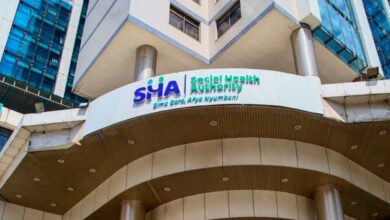
Ghana’s government and the International Monetary Fund (IMF) have reached a staff-level agreement on the $3 billion loan programme, after which the West African nation will receive a second $600 million.
But before loan approval, official creditors will first reach a consensus on the debt financing plan as they did during the release of the first $600 million trance.
“To ensure timely completion of the review, the country needs official creditors to quickly reach agreement on a debt treatment in line with the financing assurances they provided in May 2023,” the IMF said in a statement on Friday.
President Nana Akufo Addo himself admitted last October that the country was “in crisis” citing “malevolent forces that have come together at the same time”.
But the opposition also blames the crisis on what it calls the “gross mismanagement” of the economy – an allegation the government has denied.
Ghana had asked the IMF for financial support last year as it grappled with its worst economic crisis in a generation brought on by spiralling public debt.
The three-year extended credit facility is contingent on domestic and external debt restructuring, spending cuts and other fiscal adjustments.
Ghana received the first $600 million tranche of the loan in May.
IMF Managing Director Kristalina Georgieva had said in May that Ghana would receive the second tranche somewhere between November and December 2023.
The IMF funds will boost Ghana’s coffers and help it work towards the target of foreign reserves amounting to the equivalent of three months of imports by 2026, he said.
Like some other smaller, riskier emerging markets including Sri Lanka and Zambia, Ghana faces a debt overhaul after its already strained finances buckled under the economic fallout from COVID-19 and Russia’s invasion of Ukraine.
Some $5.4 billion of debt to official creditors had been earmarked for restructuring, according to government data, as well as $14.6 billion of debt to private overseas creditors.
Fitch Solution says Ghana’s economic growth will slump in 2023 due to runaway inflation and fiscal prudence under the IMF programme.
“We maintain our forecast that the Ghanaian economy will expand by 3.0% in 2023 – down from 3.1% in 2022 – as high inflation and fiscal prudence under the country’s IMF programme weigh on domestic demand,” said Fitch in a report published on October 5, 2023.
Prices of Ghana’s international dollar bonds have been rising gradually since March on hopes a restructuring deal can be achieved, although they suffered a minor relapse this week due to a widespread selloff in global debt markets.






I don’t think the title of your article matches the content lol. Just kidding, mainly because I had some doubts after reading the article.
Your article helped me a lot, is there any more related content? Thanks! https://accounts.binance.com/en-NG/register?ref=JHQQKNKN
I don’t think the title of your article matches the content lol. Just kidding, mainly because I had some doubts after reading the article.
I don’t think the title of your article matches the content lol. Just kidding, mainly because I had some doubts after reading the article.